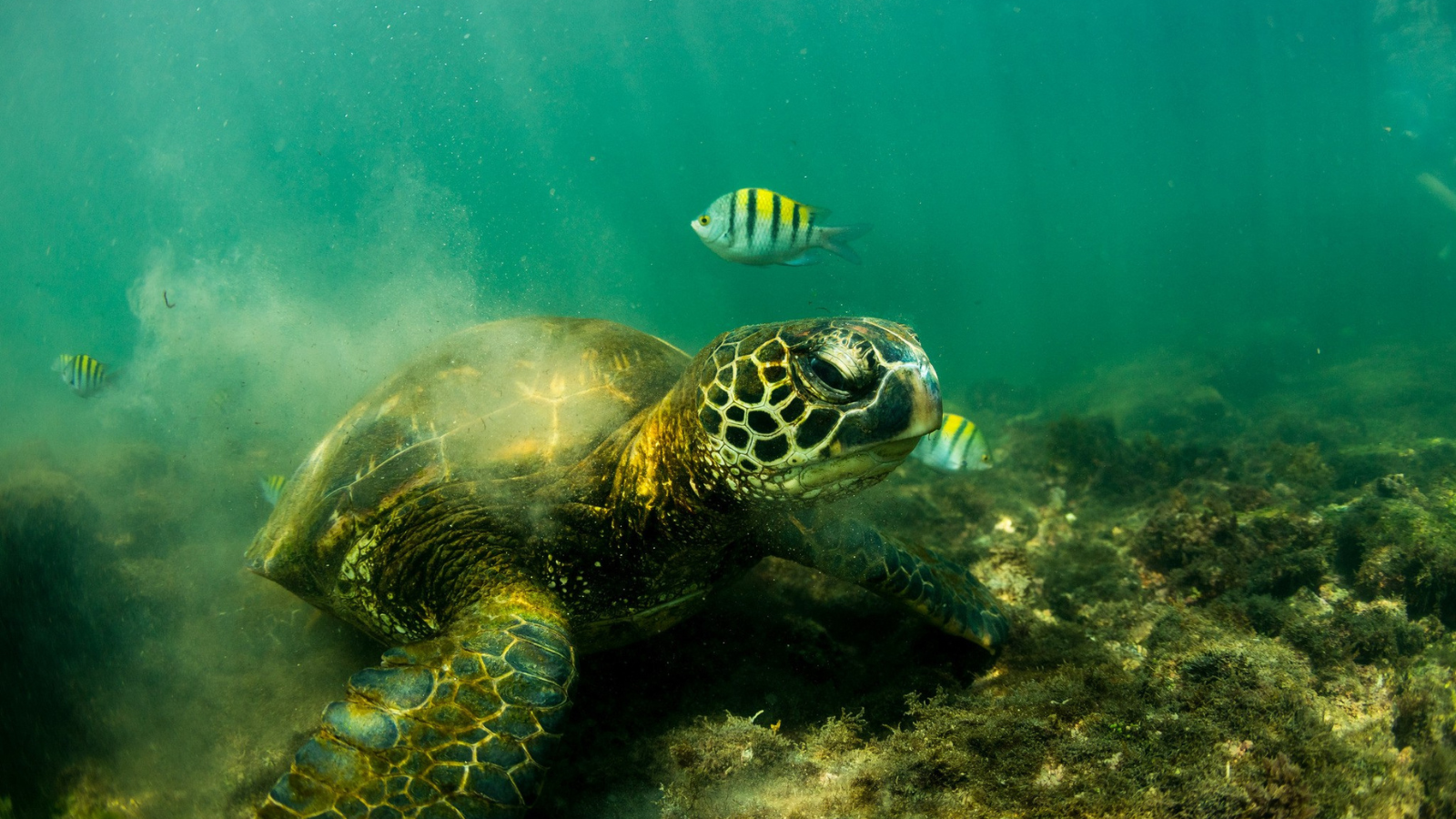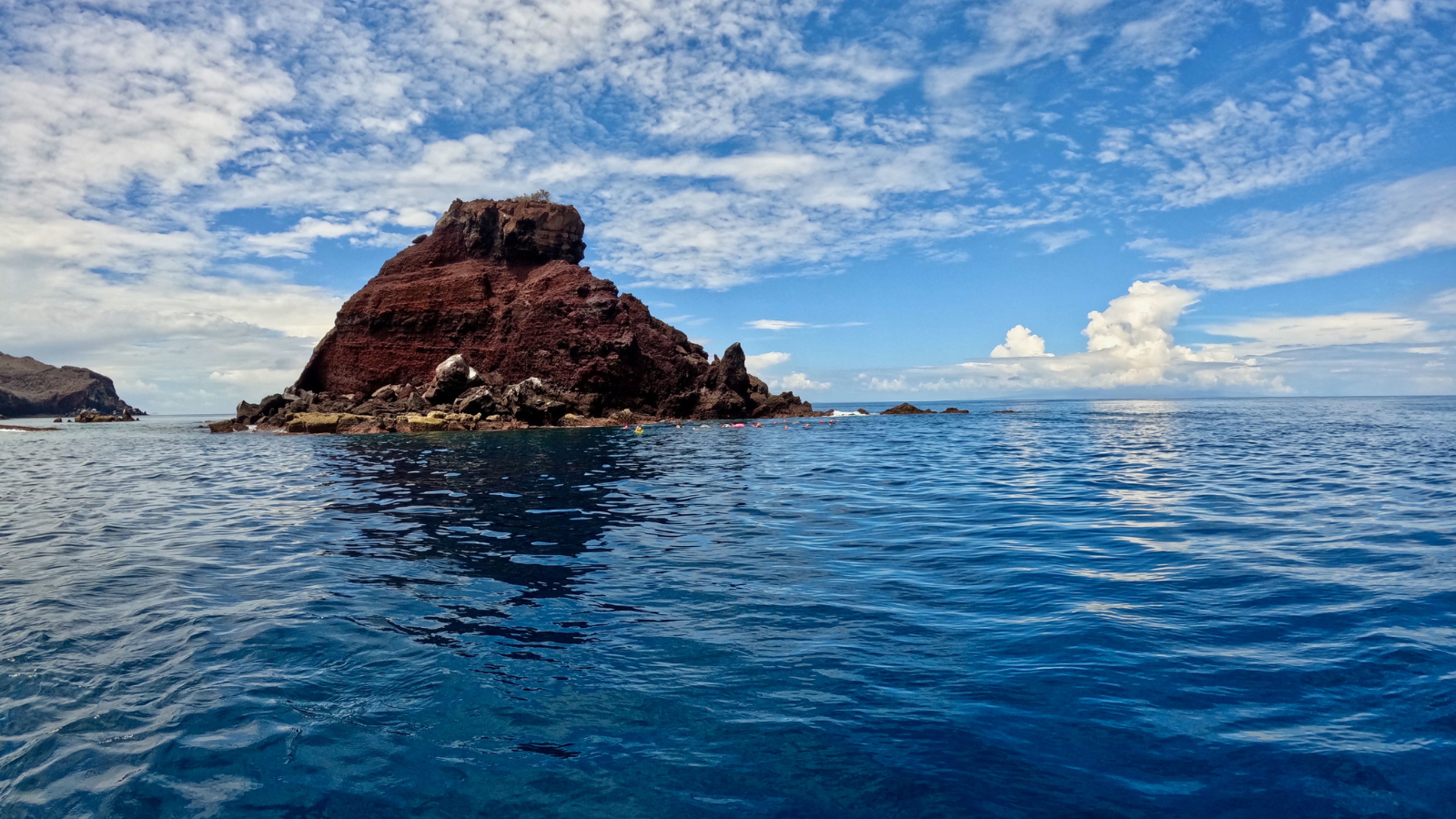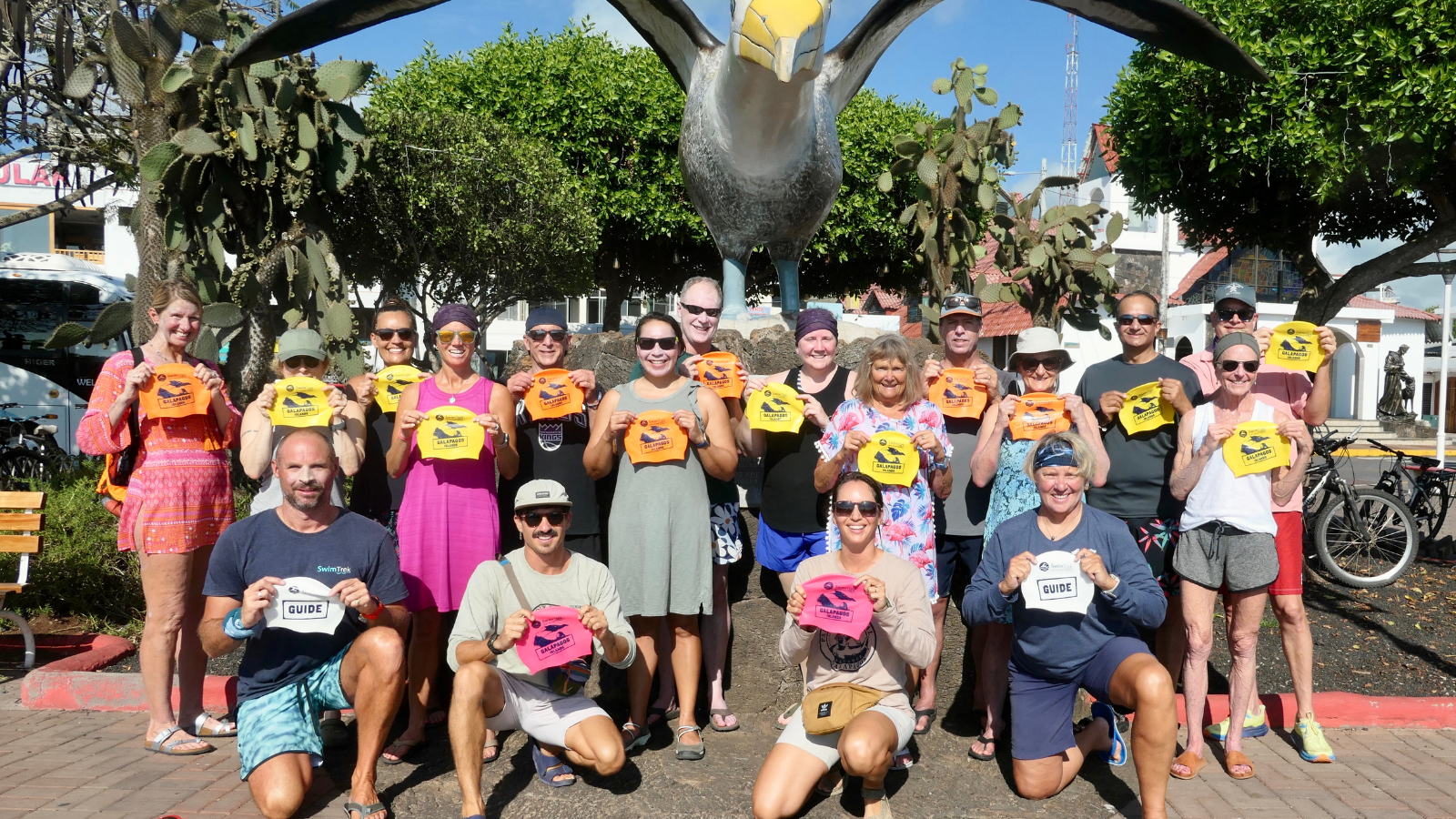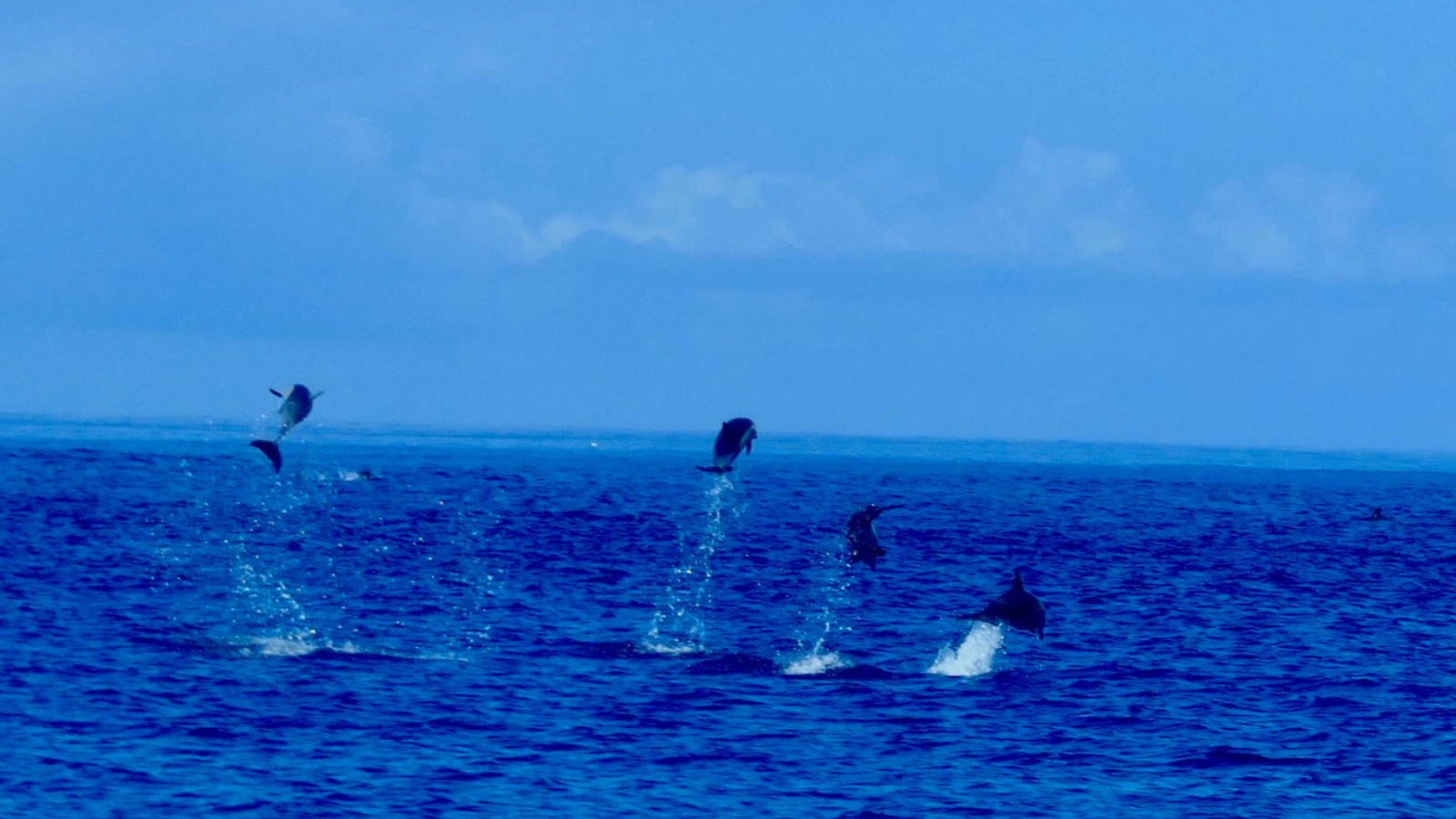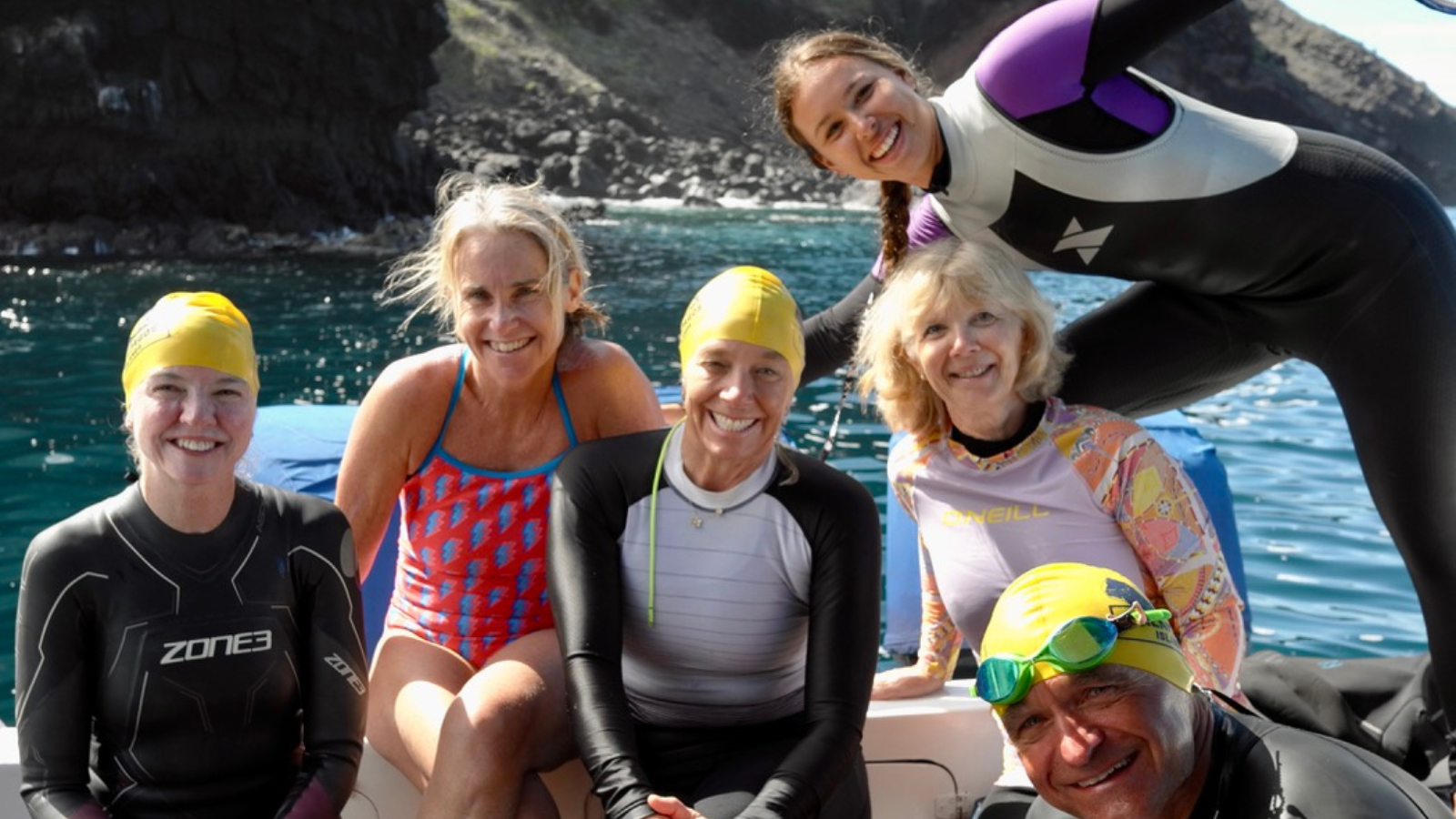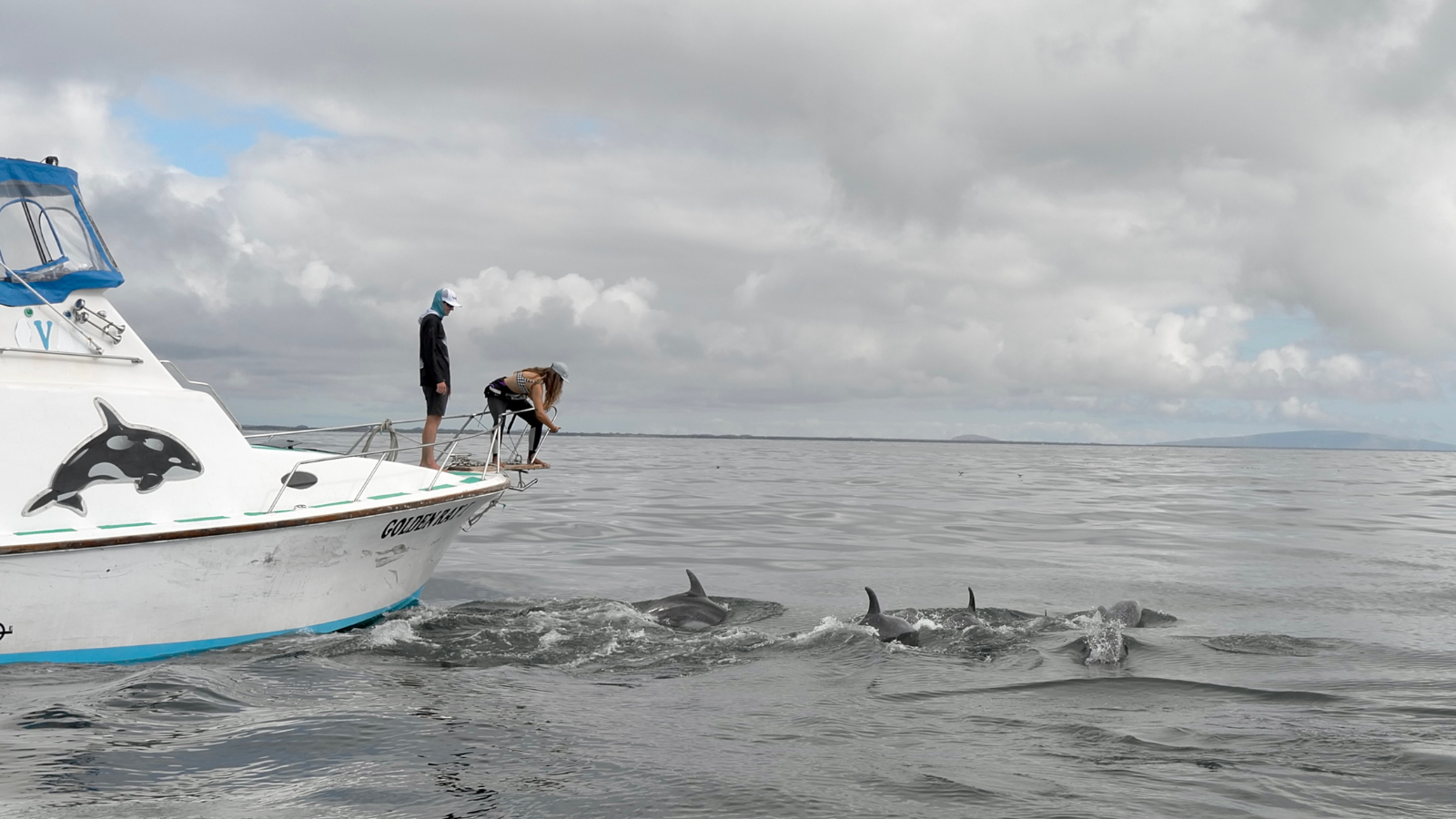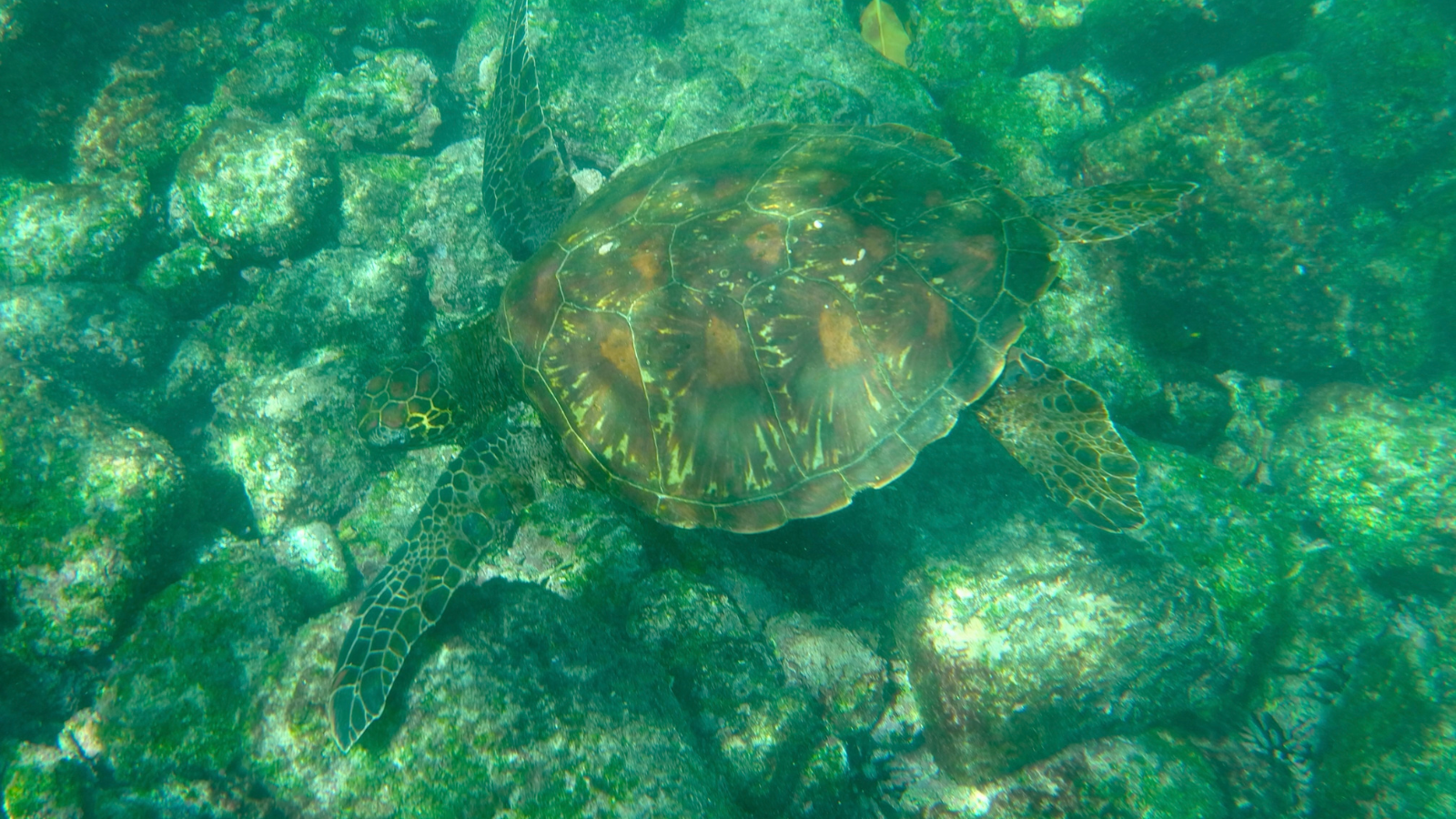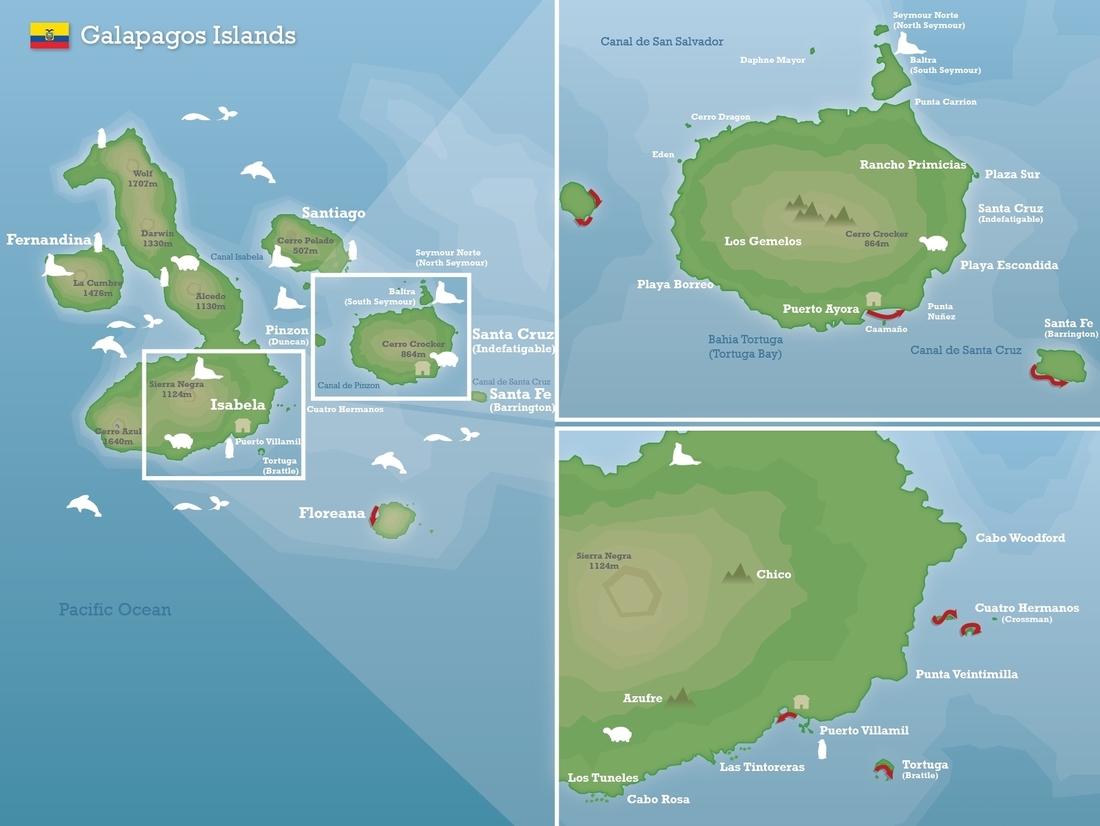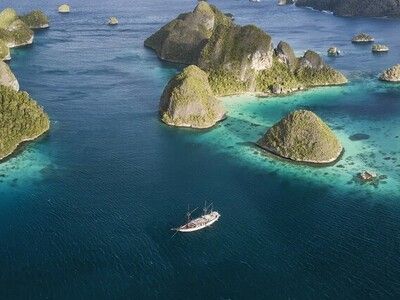TRIP OVERVIEW
Trip Dates
| 14 Feb - 20 Feb |
Finished
|
| 21 Feb - 27 Feb |
Started
|
| 28 Feb - 06 Mar |
Full
|
| 07 Mar - 13 Mar |
Full
|
| 14 Mar - 20 Mar |
Full
|
| 02 Jan - 08 Jan |
Available
|
| 09 Jan - 15 Jan |
Available
|
| 16 Jan - 22 Jan |
Available
|
| 23 Jan - 29 Jan |
Available
|
| 30 Jan - 05 Feb |
Available
|
| 06 Feb - 12 Feb |
5 Spaces
|
| 13 Feb - 19 Feb |
Available
|
| 20 Feb - 26 Feb |
Available
|
| 27 Feb - 05 Mar |
Full
|
| 06 Mar - 12 Mar |
5 Spaces
|
| 13 Mar - 19 Mar |
Private
|
In a group of 5 or more? We'll help you to plan your trip
Tour Highlights
Explore one of the world's most stunning natural environments and discover the incredible biodiversity of the Galapagos National Park and Galapagos Marine Reserve
Swim with sea lions, marine iguanas, sea turtles, manta rays and an incredible range of fish and other marine life
Complete a breathtaking swim in and around the iconic volcanic crater of Tortuga Island
Learn about the critical work being carried out on and around the islands by a dedicated team of local and international conservationists
Join us on the trip that time forgot for a once-in-a-lifetime swimming holiday in one of the most breathtaking locations on the planet: the Galapagos Islands! Lying on both sides of the equator in the Pacific Ocean, this vast volcanic archipelago is home to an abundance of plant and animal species not found anywhere else on Earth.
This trip offers the opportunity for some true ocean swims with a stunning array of marine life, including sea lions, sea turtles, manta rays, dolphins, marine iguanas and countless rare and exotic fish species. Sharing the water with these beautiful creatures is a truly life-changing experience - something which is only possible in this tiny spot of our vast planet.
With its incredible level of biodiversity, the Galapagos National Park and Galapagos Marine Reserve form a fascinating treasure trove of flora and fauna. Charles Darwin visited the islands in 1835, and, from his observations, developed and wrote his opus: On The Origin of Species.
This trip is a real wildlife exploration both above and below the water, as we swim in crater rims, around isolated islands and across beautiful bays. If you love the idea of getting up close and personal with stunning wildlife then this trip is definitely for you!
If you would like to explore even more of the Galapagos, check out our Galapagos Explorer trip.
Who is this trip for?
This trip offers a fantastic combination of exploration, observation and swimming. It is ideal for anyone who is as keen to swim along remote volcanic coastlines as they are to tread water and spot exotic wildlife beneath the waves. Due to conditions of Ocean swims we recommend that swimmers are experienced in open water.
Swimmers should have a basic understanding of open water swimming and be capable of completing the average swim distance and average daily swim distance (over the course of two swims) prior to the start of the trip.
The average swim distance is around 2½km. The average daily swim distance is around 4½km.
We have given this trip a ‘Moderate’ grading. Most swimmers comfortable in the open water will be able to take part and enjoy one of these trips.
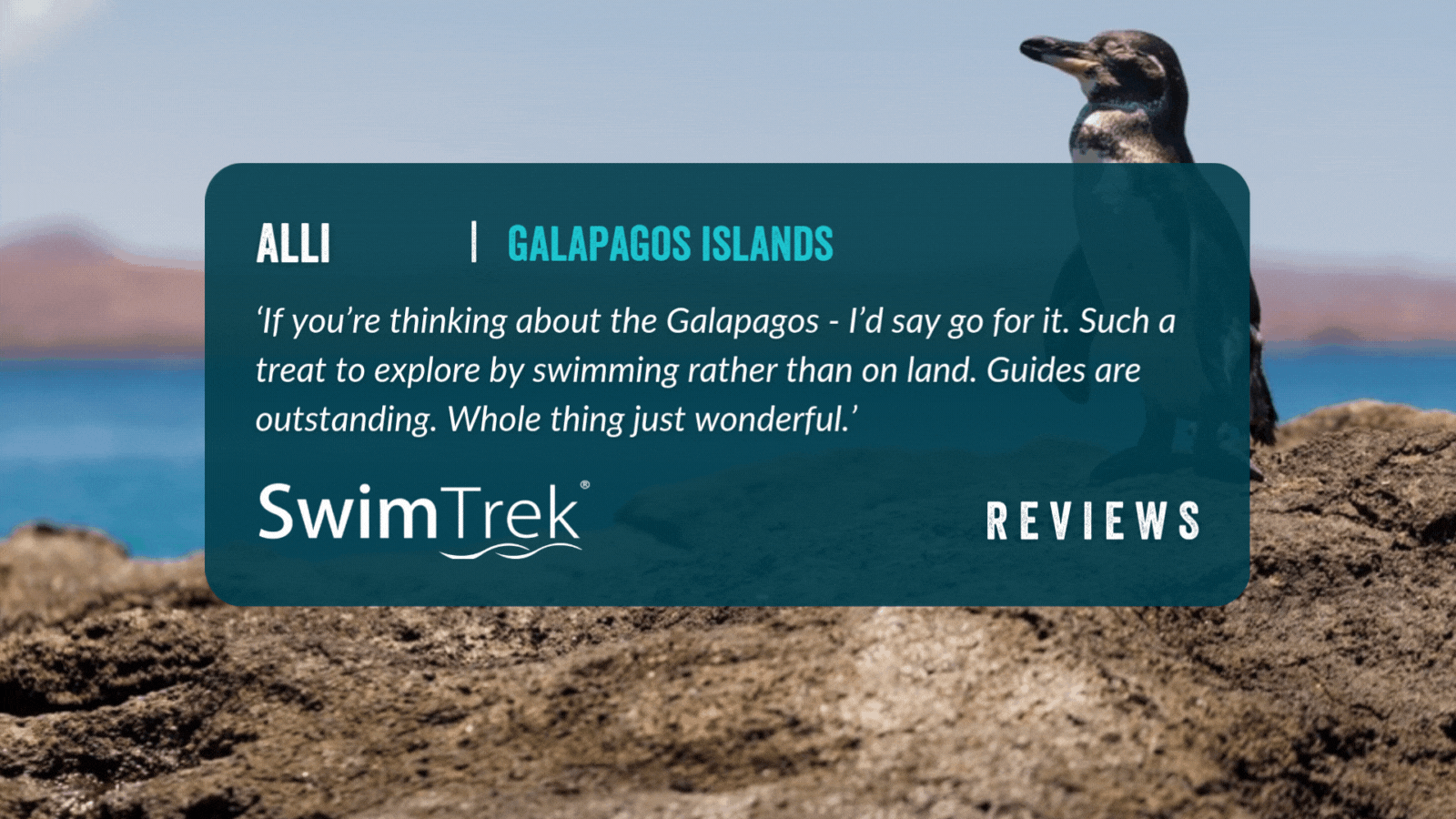
What's included?
- Fully guided swimming holiday (swimmers only)
- Professional swim guides and full safety escort on all swims (swimmers only)
- Six nights' accommodation
- All breakfasts
- All lunches (swimmers only)
- ABTOT Protection, in accordance with our terms and conditions.
- Full permissions for open water swimming supplied by the Galapagos National Park (Swimmers Only)
- Qualified Galapagos Naturalist Guides, with in depth knowledge of the archipelago and its wildlife, to accompany guests on all swims
- Dinner on the first night (Day 1)
- Transfers to and from the airport at the start and end of your trip
- Transfers to and from Hotel to Piers
- Transfers between Santa Cruz and Isabela islands on Day 4 and return on Day 7
- Isabela Island Entrance Tax
What's not included?
- Travel to and from the start of the trip
- Evening meals
- Drinks and additional activities
- USD$200 National Park fee (cash payment).
- USD$20 INGALA Transit Control Card (cash payment)
- Extra night's accommodation, booked at info@galapagosalternative.com
Group of 5 or more?
If you're travelling with a group of friends, family or swim buddies, speak to our Group Travel team to get tailored advice, special pricing and discounts, and early access to new trips and departures.
Sample Trip Itinerary
Please note that the below daily itineraries are an example of the swims that may take place during your trip, however, actual swim locations and distances will vary according to local weather and swim conditions. Your SwimTrek guides and local boat pilots will determine the most suitable swim locations each day and will communicate the plan with all guests as soon as possible.
Trip Schedule
Day 1
Day 2
Day 3
Day 4
Day 5
Day 6
Day 7
Map
Location Summary
Trip Grading
Trip Information
Getting There
Arrival and Departure Information
Accommodation
Travel Advice
Flexible Booking
Related Trips
Photos (click to enlarge)
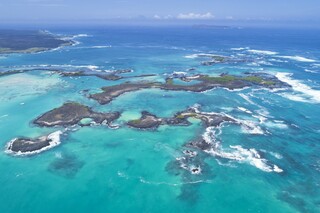
The Galapagos Islands from above
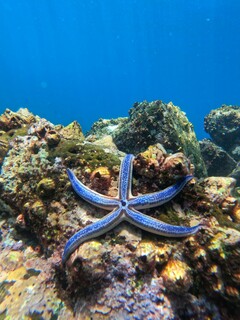
Starfish in the Galapagos Islands
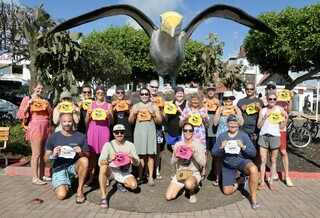
Our SwimTrekkers in the Galapagos Islands!
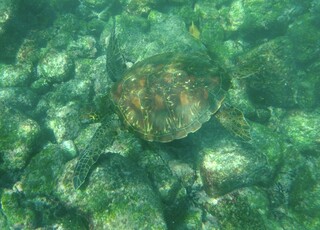
Sea turtle explore the reef
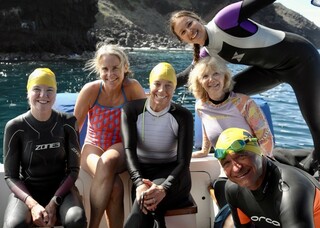
2026 SwimTrekkers in the Galapagos Islands
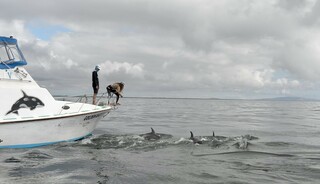
2026 boat with dolphins in the Galapagos Islands

Galapagos Islands
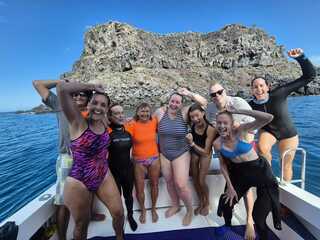
Group picture in the Galapagos
Photo by Marlys and Paul

Swimmers head into a cave
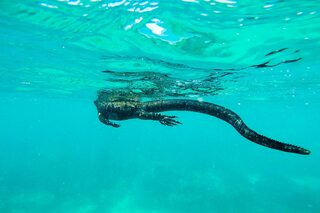
Galapagos swim buddy

Swimmers enjoying the Galapagos
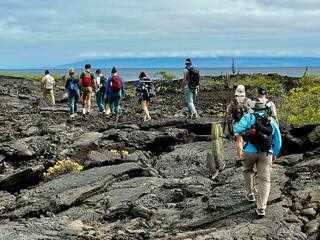
Exploring the Galapagos foot
Photo by Ben
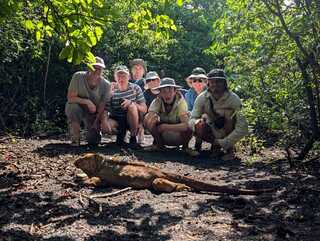
Group exploration of the Galapagos
Photo by Ricky and Ben
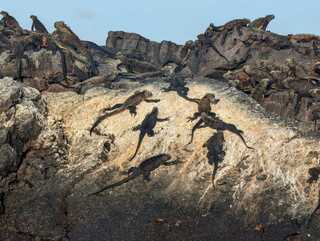
Sunbathing lizards in the Galapagos
Photo by Ricky and Ben
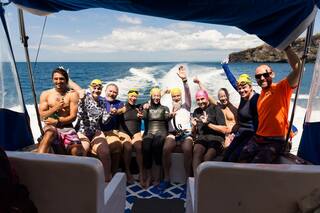
Onwards to the next swim in the Galapagos Islands

Local marine iguanas

Lively 2023 dolphin display!

Stunning coastline

More happy dolphins

Whale shark surfaces under our SwimTrekkers

Swimmers out among the rocky islands

Flexible sea lions on the rocks

Stunning clear green waters of a Galapagos bathing pool

Iguana sunning itself

Swimmers outside a Galapagos cave

Close up of our 2022 Galapagos SwimTrekkers!

The Galapagos islands

The Galapagos

The Galapagos

The Galapagos

The Galapagos

The Galapagos

The Galapagos

The Galapagos

The Galapagos

The Galapagos

The Galapagos

The Galapagos

The Galapagos

Galapagas 2017

Baby seal

The Galapagos islands

The Galapagos islands

The Galapagos islands

The Galapagos islands

Galapagos

The Galapagos islands

The Galapagos

The Galapagos








